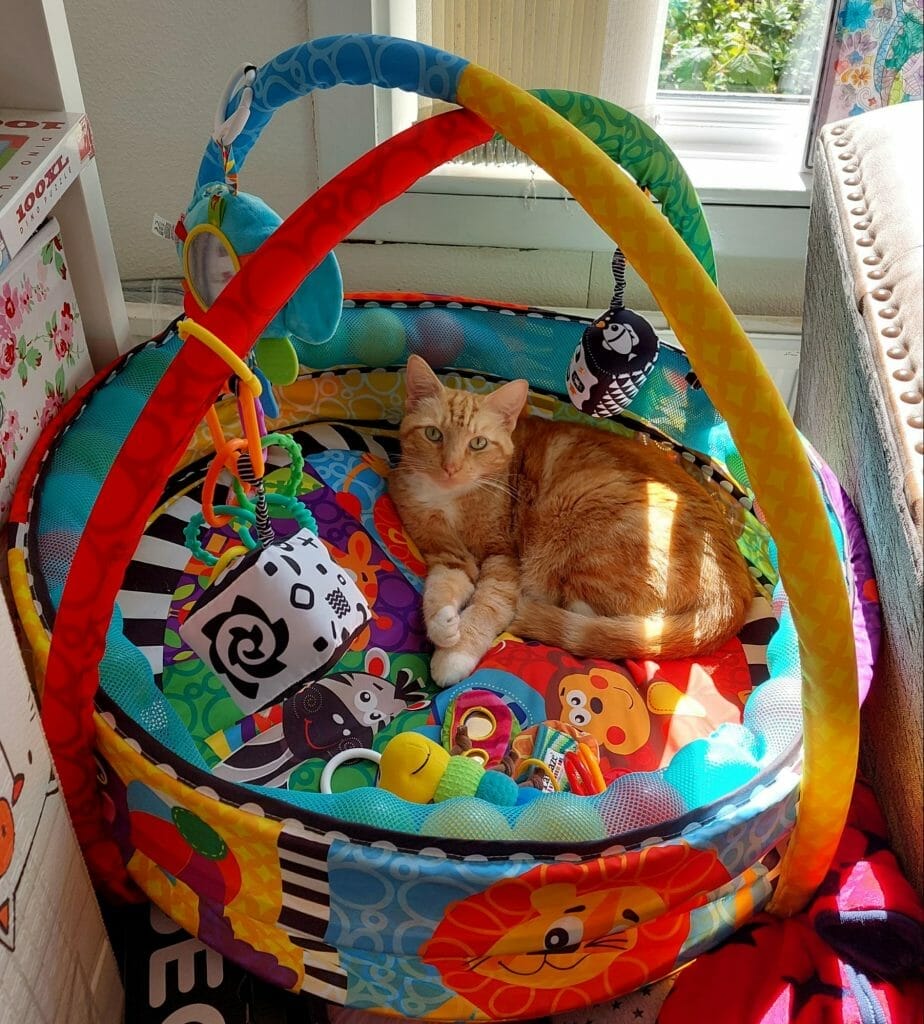People say that change is as good as a rest. And there has certainly been a significant change in the Porovic/Clark household as we welcomed our newest family member, baby Louis, into the world this April. Whilst it has been the most wonderful of times, we have all had to adapt – even the cat, Charlie, whose behaviour suggests that he feels personally affronted that we felt the need to get another pet.
Change can be exciting but it can also be unsettling. It all depends on circumstances and context, and some may argue that it depends on whether you perceive that you have ownership and control over the change or not.
Let’s take my cat Charlie as an example. Charlie has no control over the arrival of the new family member, the explosion of clutter and noise, the distracted pet owners and the proliferation of sleeping places that he’s not allowed to enjoy. Charlie, however, is very much an alpha cat, and as such has made it his mission to not let this difficult change defeat him or reduce his expected level of feline comfort. Yes he has to work harder for it; darting into rooms where the comfy pet/baby size bed is, sitting in uncomfortable but well positioned baby gyms, using the cover of night to exercise his gums on the baby’s dummy. With every act he risks being thrown out when he gets caught. In short, Charlie is taking control – he is resilient, adaptable and able to seize and make the most of an opportunity, even when the circumstances would suggest that things are not playing out in his favour.
As we come to the end of one academic year and look forward to what comes next, all of us who mark our time according to the academic clock are filled with a mix of emotions; relief, gratitude, pride, excitement and possibly even apprehension. We reflect on the sum total of our experiences, all that we have successfully navigated to get to this point.
In order to be here, rejoicing in this moment, we cannot deny that all of us have coped with significant changes and challenges. Some of these have been inevitable or self-inflicted, others have been unexpected and perhaps were even unwelcome. And yet, every experience and our response to it, defines us in the moment and determines the way that we look back on and interpret the impact of that change.
As parents and educators we have a huge responsibility both in modelling the best possible response to change, expected and desired or otherwise, as well as helping our children to learn healthy and effective techniques for coping with it and making the most of it.
Whichever year your child is in, they are about to “move up” into the next phase of their educational life journey. Our Nursery pupils are “graduating” into reception, our Year 2s are traversing the green gulf between the Pre Prep and Prep buildings, the Year 6s have bid an emotional farewell to Mr Rund and Mr Condon and with baited breath await the brave new world of Senior School. Our Year 13 leavers are waiting for the results of their public examinations and charting a course that marks the beginning of the rest of their lives.
Indeed, when you consider it very carefully, the journey to adulthood is one of constant change and adaptation. Child and adolescent brains are so wonderfully “elastic” and adaptable and children know no different than to expect that things will change. Very often they also have very little control of the changes they experience and they are carried along on the tide of well rehearsed academic routines. We teach them to make the most of their opportunities and to focus on controlling what they can (i.e. their response to situations) rather than what they can’t. As they get older they increasingly seek independence and look forward to a time when they get to make the “big” decisions in their lives and become masters of their own fate. The illusion of control – a bubble burst by the realisation that just as they are liberated of routines and known pathways, so the world gets exponentially bigger. The need to deal with change, often unpredictable, becomes even greater.
So, how do we support our children to master their approach to change; how do we maximise their adaptability and resilience?
The answer is by enabling them to develop empathy, self agency and compassion; to develop their ability and willingness to love themselves and others. This is because much of what life throws at us requires of us a need to dig deep and search for sources of strength and self worth. Neither of these can be taught, they have to be felt. A child who feels loved, safe and secure, who is encouraged to sense the needs of others and rejoice in the happiness that kindness bestows on the giver as well as the receiver is well placed to thrive in an unpredictable world. We cannot be there with them as they respond to every situation that life will throw at them, but knowing that they are loved and that what they offer to the world is of value, stands them in good stead to make good decisions in the face of change and uncertainty.
Charlie, after much rebellion, has realised that there is still a space for him in our lives. After all, give it a few years and there will be yet another person to fuss over him and be falsely convinced by him that he has not yet been fed….



